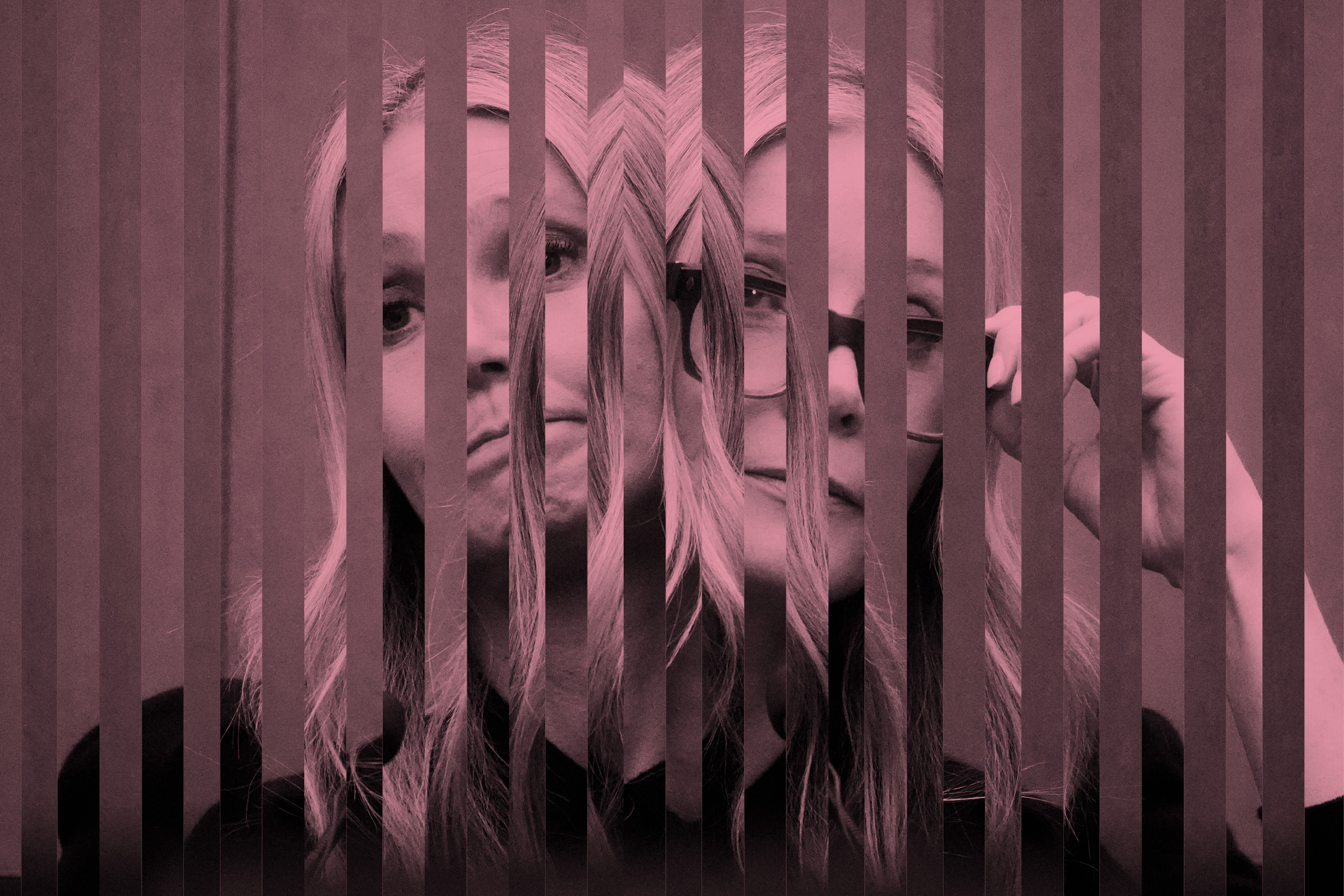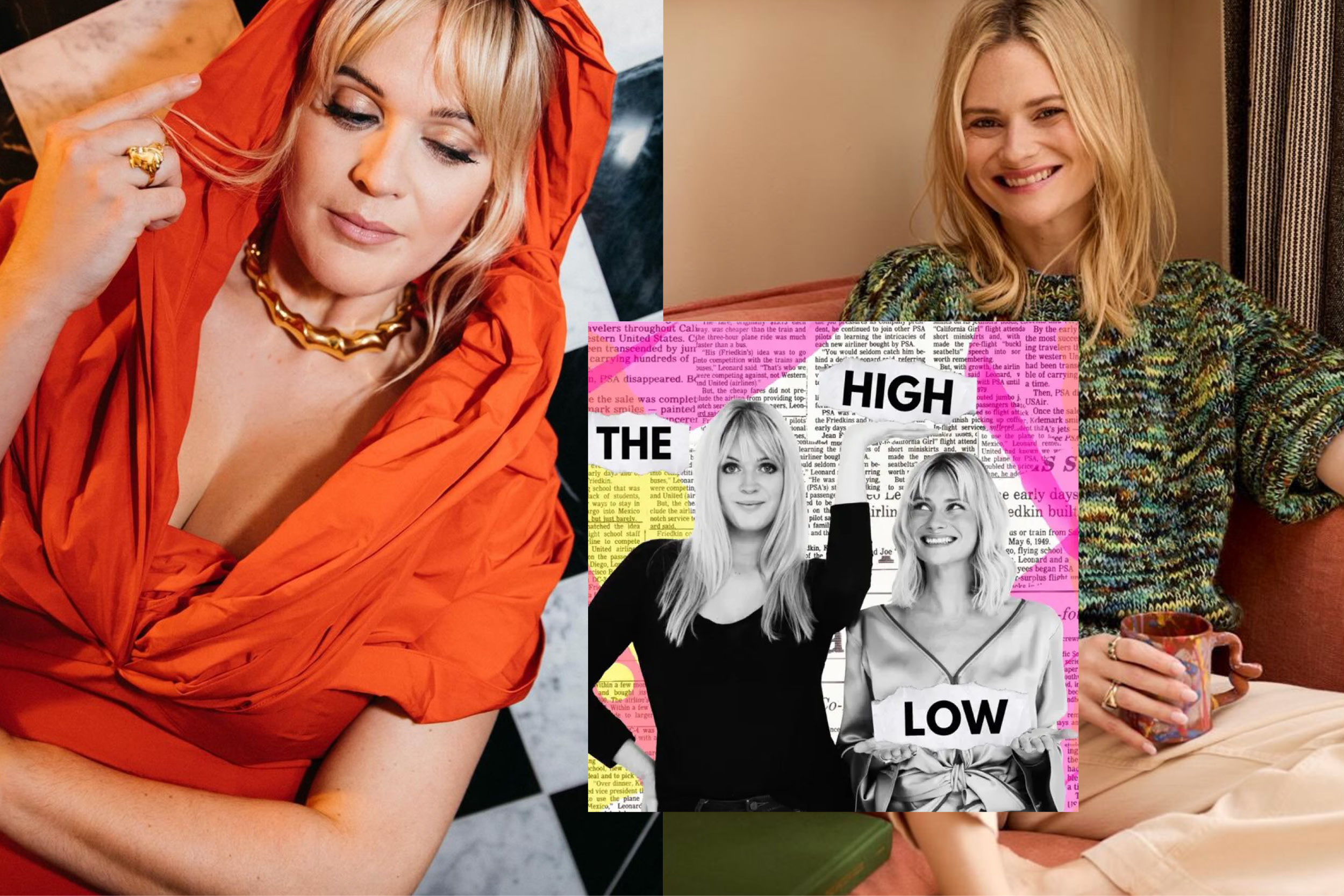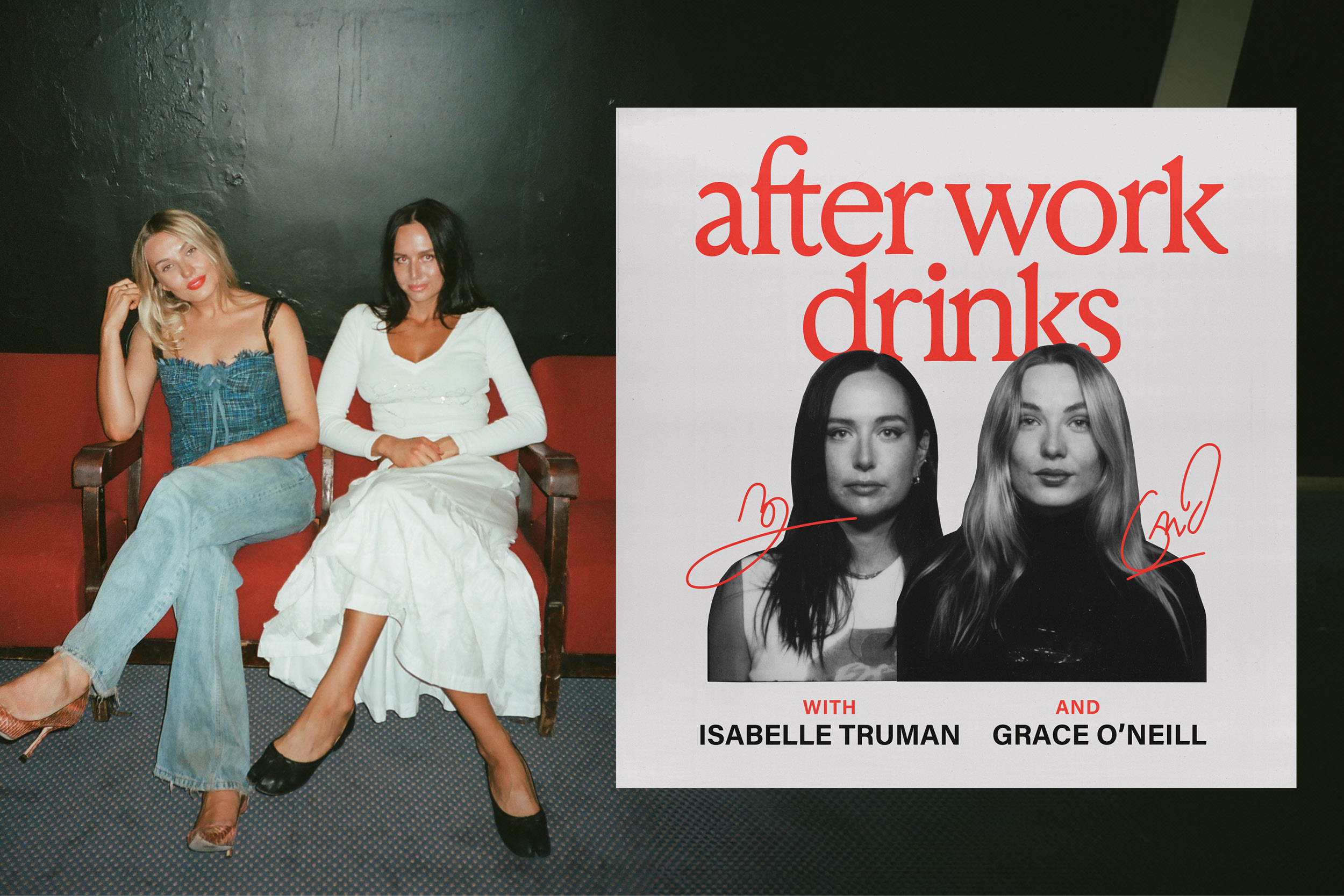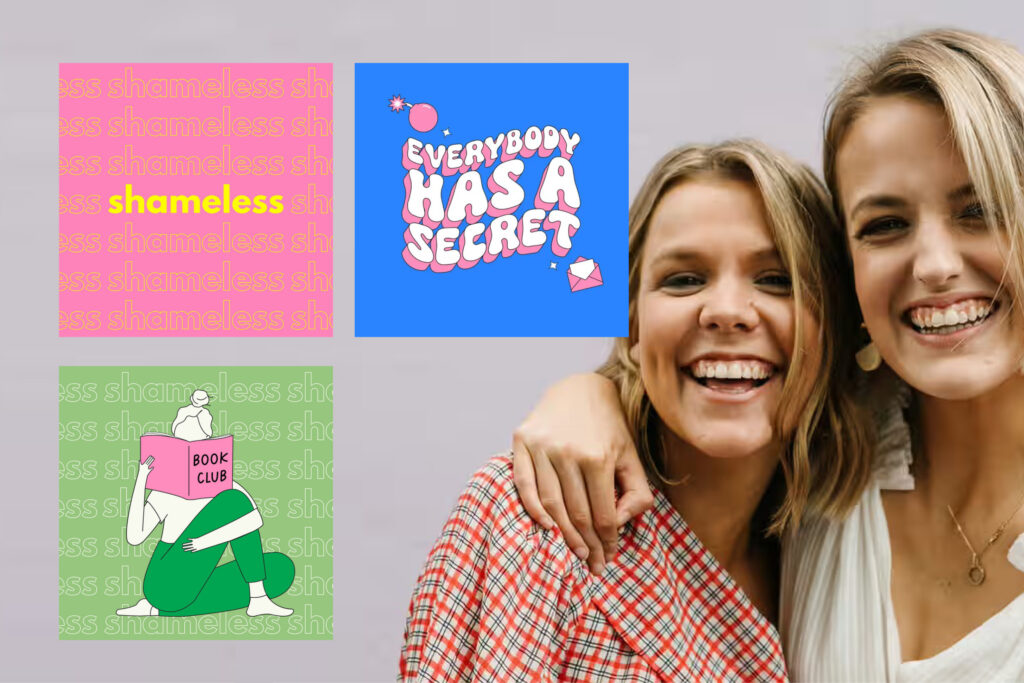How to ask for what you want
LeadershipCatherine Brenner, Louise Adler and Sam Mostyn offered their advic...
Become a part of the FW family for as little as $1 per week.
Explore MembershipsTurn words into action. Work with us to build a more diverse and inclusive workplace.
Learn MoreHear from notable women around the country on topics including leadership, business, finance, wellness and culture.
Mark your diariesTwo days of inspiring keynote speeches, panel discussions and interactive sessions.
Learn MoreCatherine Brenner, Louise Adler and Sam Mostyn offered their advic...
Em Rusciano outlines four lessons we can all take from her own sei...
In our latest series, Making The Case, Future Women's arguer-in-ch...
Putting survivors of family violence at the centre of the story.
Listen NowA program for mid-career women and exceptional graduates to fast track their career journey.
Learn MoreConnect with expert mentors and an advisory board of like-minded women to solve a professional challenge.
Learn MoreIn Don’t Look Up, the satirical Netflix film where two astronomers attempt to warn society about an approaching comet that will soon destroy the earth, there is a particularly memorable scene that perhaps depicts the film’s entire premise. The two astronomers, Dr Mindy (Leonardo Di Caprio) and Dr Dibiasky (Jennifer Lawrence), sit on a newsroom set, explaining the fate of their discovery to the two news presenters before them and the millions of viewers watching on.
No one appears to clock the severity of their claims, partly because avoidance is a coping mechanism one employs to live with an undesirable reality, and partly because the audience is distracted. The popstar Riley Bina had appeared behind the newsroom desk moments earlier to address her breakup with DJ Chello, after news emerged that the rapper had cheated on her. Live on air, she announced that she would take him back and, live on air, DJ Chello appeared – proposing to the popstar as the world watched on.

Gwyneth Paltrow’s 2023 ‘ski trial’ turned into a pop-culture phenomenon, even inspiring a London musical.
I have thought about this scene often over the past year. I have also thought about many other things: Kathy Hilton’s breakdown in season twelve of The Real Housewives of Beverly Hills, the romantic fate of Taylor Swift and Travis Kelce, Gwyneth Paltrow’s ski trial and Jeremy Allen White. As recessions happen, cost of living rises and the climate crisis remains fervently on our minds, keeping up with pop culture has become, in a sense, a way to avoid reality. And a slew of pop culture podcasts run by young women have capitalised on this behavioural tick — tapping into the universal conversation their peers are having at coffee, during dinner and over drinks.
While the dynamic between hosts varies, the formula for the pop culture podcast is simple: two hosts, who are usually best friends, discuss everything from the latest celebrity gossip to their favourite books and TV shows, traversing a mix of high and lowbrow content.
Critically, the lowbrow content is treated with an intellectual rigour, a seriousness that examines not just the issue at hand, but what it says about society more broadly. Kim Kardashion and Pete Davidson’s fleeting romance challenges patriarchal notions that women shouldn’t (or aren’t able to) date younger men. Sophie Turner and Joe Jonas’ messy separation showcases the unfair — and deeply entrenched — expectations put upon mothers.

UK writers Dolly Alderton and Pandora Sykes rapidly developed a large global following after launching The High Low in 2017.
UK Writers Dolly Alderton and Pandora Sykes arguably led this subcategory of media when they launched their podcast, The High Low, in 2017. They quickly developed a large global following that allowed the two individuals to build personal brands and successful careers outside of the format.
While they ended the podcast in 2020, both have gone on to publish bestselling books — one of which was adapted for television — and build prosperous careers that include writing, broadcasting and hosting events. And as the podcast genre continues to swell, they aren’t the only women building big followings, highly-engaged communities and careers that contain a sense of freedom and agency.
“We started it quite naively. And without too much forethought.”
Isabelle Truman and Grace O’Neill met while working at Harper’s BAZAAR Australia and quickly forged a tight friendship. The role of an editor requires countless industry events and it was after work, during these events — usually with a glass of champagne in hand — where the two noticed there was something special to their dialogue.
“We had seen what The High Low was doing overseas and we really liked it,” Truman tells FW. “We thought there was a gap in the market for that in Australia and New Zealand.” However, they wanted to produce a podcast in a more “informal way”, replicating the conversation one has with a girlfriend over a wine. It was 2018, the beginning of the podcast boom, when they recorded the first episode of After Work Drinks. “We started it quite naively,” Truman says, “And without too much forethought.”

After Works Drinks’ O’Neill and Truman held their first live show in Sydney earlier this year.
Today, After Work Drinks has approximately 30,000 downloads a week and listeners all over the world. Seventy percent of its audience is from Australia, with New Zealand, the UK and the US making up the other 30 percent. Not long after starting the podcast, Truman and O’Neill left their magazine jobs, went freelance and moved to London. They filed features, attended London and Paris fashion weeks and continued releasing new episodes each week. Their audience grew organically as listeners were given a glimpse into their freelance careers and life abroad.
“As our audience has grown, we’ve grown alongside them, as people and as friends and within ourselves,” Truman says. “We cover topics that we care about and are thinking about at that moment; and it seems to be the same thing that other women are also thinking about at the same time. Sometimes we can talk about quite heavy topics and sometimes it’s just a really ‘smooth-brained’ chat. And I think that’s the way we communicate with our friends.”
During the pandemic, the pair launched their Patreon (a platform enabling creators to receive direct financial support from fans, in exchange for exclusive content through monthly payments or one-time contributions) and began releasing a second episode each week exclusively for paying subscribers. It was more intimate in nature, feeding the parasocial relationship their listeners have with the two best friends. “The launch of Patreon was when we really started seeing consistent revenue coming in,” says Truman. “Just having that confirmed income every month, has obviously meant that we can take the pressure off our other work, do jobs that we’re really passionate about, and [write about] things that we really care about, which is obviously such an incredible, massive thing. I think we take it for granted sometimes.”
“Both of us feel really grateful to our audience for giving us their trust and love.”
The podcast has always been an extension of their writing careers — instead of their sole professional priority — and as it has grown into a financially successful venture, it is something that has given Truman and O’Neill the freedom to choose how they want to work and live. Truman, who now lives in Los Angeles, is currently writing for Vogue Business and RUSSH magazine while doing Global Public Relations for Entire Studios. While O’Neill, who is splitting her time between London and Sydney, has been appointed the new editor of ELLE Australia, which returned to print last month.
“The podcast is hugely to thank for why I can work the way I work and live the way I live at the moment,” Truman says. “Everything complements each other in this really beautiful, harmonious way.”
The pair will often discuss features they are working on or fashion shows they are attending in their other roles. In a recent episode, O’Neill fielded listener questions about the relaunch of ELLE Australia while Truman discussed a feature she was writing for Vogue Business about The Row’s ‘no phone policy’ at Paris Fashion Week.

Michelle Andrews and Zara McDonald pictured with their three podcasts Shameless, Everybody Had A Secret and Book Club
Michelle Andrews and Zara McDonald met at women’s media company Mamamia, when they were both in their early twenties. Often working weekends and late shifts together, they formed a close bond and quickly realised they were interested in the same things: from the book they were reading, to the television show they were watching, to the latest celebrity couple.
The conversations they had about these cultural recommendations led to an idea for a podcast “for smart people who love dumb stuff”. The duo called it ‘Shameless’ and pitched the idea to their bosses at Mamamia, who approved it and then rejected it at the final hour. It was at this point that the twenty-somethings decided to bet on themselves and produce it independently. They purchased their own podcast equipment and began recording it on weekends. It took off after 10 months.
Today, Shameless Media amasses 1.1 million social media followers, 2.5 million podcast downloads a month and 1 million unique listens. The podcast has led to a company that is the main professional priority for the two founders. And with a slate of podcasts under their umbrella brand — including Everybody Has A Secret and Shameless Book Club — it has continued to grow at a steady and impressive pace. With headquarters in Melbourne, Andrews and McDonald are not only podcast hosts, or founders, but bosses to the eleven staff they now employ.
Expanding the company and upskilling junior team members has become a way for the co-founders to future-proof their company and the personal choices they may want to make down the track. Andrews and McDonald are both married, and while children are not in their immediate futures, it is something they have discussed, both together and publicly. “I hate that we had to do this, but it was like, how do we have kids?” McDonald recently told Sunday Life. “How do we do this and have a family if the whole business is relying on us showing up together at the same time?”
While the young women behind these podcasts have used their platforms to create different worlds for themselves, each now harnesses a level of influence. The relationship they hold with their listeners isn’t so different to the one they might hold with any of the celebrities they discuss on air — parasocial in nature. And as their communities continue to grow and this parasocial relationship deepens, conversation that was once reserved for celebrity gossip has evolved to tackle life’s more existential questions.
Shameless’ weekly newsletter, Ask Shameless — which has more than 60,000 subscribers — is a space where McDonald, Andrews and their slew of contributors answer their community’s deepest questions. Recently, a collection of essays from the newsletter series was repurposed into a coffee-table book, 4am, and released by Penguin Random House.
“Every time we meet a listener on the street, it’s always someone we would want to be friends with.”
Meanwhile, the paid subscriber episodes of After Work Drinks reveal more personal stories and intimate details from Truman and O’Neill. A recent episode saw the hosts sitting firmly in the Agony Aunt chair, fielding voice notes from listeners about unrequited crushes, managing friendships and how one can feel more confident in social situations.
“Both of us feel really grateful to our audience for giving us their trust and love in the ways that the podcast has grown and changed,” Truman says. “And perhaps some people liked it more when it was more structured… and perhaps they don’t like that it’s a bit more chatty, and a bit more here, there and everywhere some weeks, but I love that people have stuck by us, no matter what, and have realised that this is the evolution the podcast needs to take, for it to continue to be a fun thing that we’re producing and then, by proxy, a fun thing to listen to.”
Earlier this year, O’Neill and Truman held their first live show at the Chauvel Theatre in Sydney where they spoke to a packed room of young women; most of whom, if you asked them, would identify as ‘AWD girlies’. After discussing the evolution of the podcast, they answered listener questions — which ranged from the lighthearted to the philosophical. The show, Truman says, was the “refreshing boost” she and her co-host didn’t realise they needed.
“Often we’re just doing this podcast by ourselves, jumping on a Zoom call, chucking record on. So it was really rewarding for us to see our listeners in real life and engage with them. It really reinvigorated our love of it and what we do,” she says. “Every time we meet a listener on the street, it’s always someone we would want to be friends with.”
The intellectualisation of celebrity gossip, some would argue, has become a social reflex allowing us to talk about fun, pointless stuff without feeling guilty when there are so many more pressing issues impacting the world at large. But as the pop culture podcast continues to amass loyal listeners and build close communities, it seems these conversations have become a portal, an entryway into something deeper.
If you’re not a member, sign up to our newsletter to get the best of Future Women in your inbox.
